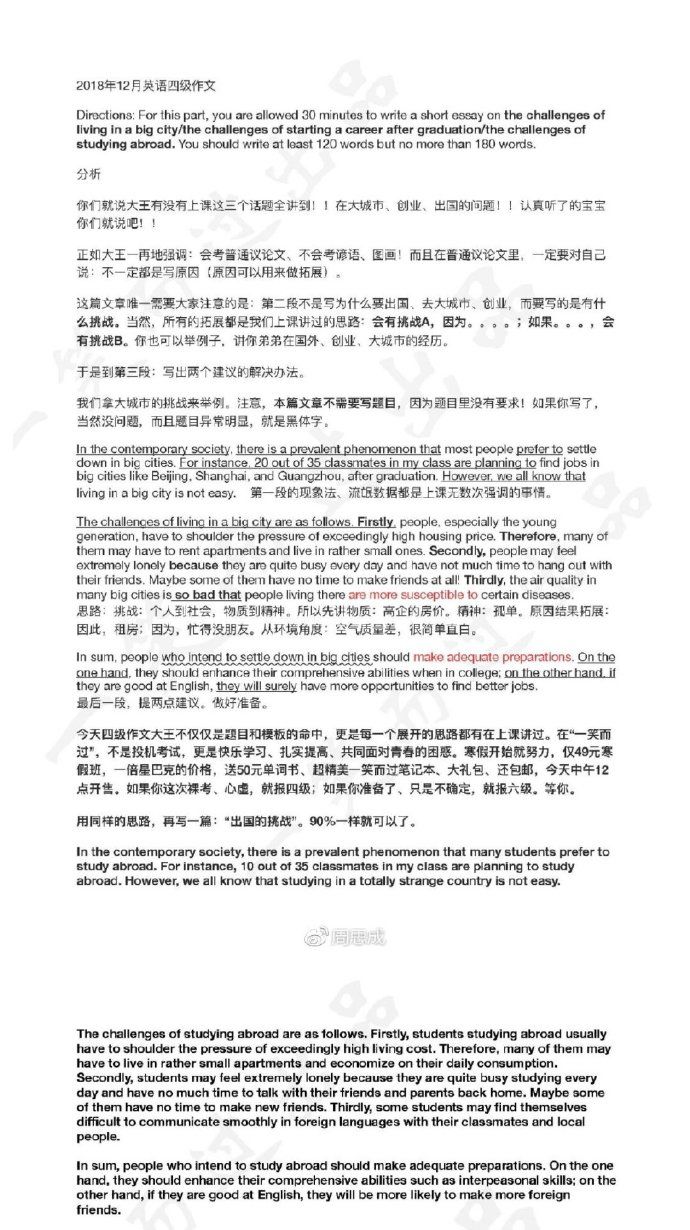|
C
The research was done by a Dr. Griffiths in England. He compared the behavior of 15 regular gamblers(赌徒) with those of 15 non?regular gamblers before and after they gambled. Both groups had increased heart rates(心率) during gambling because it was exciting. But the regular gamblers’ heart rates went down almost straight after the game, while the non?regulars remained excited and had increased heart rates for longer.
When the heart beat increases, the body produces chemicals called endorphins which make you feel good. Dr. Griffiths thinks that regular gamblers lose this good feeling soon after a game and need to play again quickly to regain the pleasure.
He has also discovered that regular gamblers have different psychological reactions(心理反应) from non?regular gamblers. In an experiment where regular and non?regular gamblers thought aloud while playing, regular gamblers had far more unreasonable thoughts. In their minds they turned losses into near?wins. Dr. Griffiths thinks that nearly winning gives the gambler a high in the same way that a win would do.
Based on Dr. Griffiths’ research, doctors suggest that one way to help regular gamblers to give up gambling is to give them beta?blockers — drugs that stop them getting a high in the first place.
64.Dr. Griffiths’ research helps you find out .
[A]which group of gamblers played the game better
[B]a chemical to increase gamblers’ heart beat
[C]a way to help gamblers give up gambling
[D]when gamblers should be given drugs
65.How did Dr. Griffiths discover the gamblers’feelings when winning and losing?
[A]By examining the different chemicals in gamblers’bodies.
[B]By asking the gamblers to speak aloud their feelings.
[C]By asking the gamblers to discuss their ideas.
[D]By testing the gamblers’heart beat.
66.The underlined words “a high” probably mean “”.
[A]a feeling of happiness[B]a reasonable thought
[C]a great expectation[D]an exciting idea
67.According to the text, what do we know about non?regular gamblers?
[A]Their bodies produce less endorphins during the game.
[B]They don’t consider losses in a game as reasonable near?wins.
[C]Their bodies have no reaction to beta blockers.
[D]They have faster heart rates during the game. D
It was probably around 3 000 years ago that people first began making things to help them measure the passage of time. Having noticed that shadows move around trees as the sun moves across the sky, someone drew a circle and put a stick in the center. As the sun passed overhead, people could tell which part of the day it was by noticing which mark on the circle the shadow fell across. These circles were called “sundials”. Later, they were made of stone and metal to last longer.
Of course, a sundial did not work at night or on cloudy days, so men kept inventing(发明) other ways to keep track of time. After glass blowing was invented, the hourglass came into use. An hourglass is a glass container for measuring time in which sand moves slowly from the top half to the bottom in exactly one hour. The hourglass is turned over every hour so the sand could flow again.
One of the first clocks with a face and an hour hand was built for a king of France and placed in the tower of his palace. The clock did not show minutes or seconds. Since there were no planes or trains to catch, people were not worried about knowing the exact time. Gradually, clocks began to be popular and unusual. One clock was in the shape of a cart with a horse and driver. One of the wheels was the face of the clock.
Today, scientists have invented clocks that tell the correct time to a split second. Many electric clocks are often made with built?in radios, which can sometimes be set to turn on automatically(自动地). Thus, instead of an alarm(闹铃) ringing in your ear, you can hear soft music playing when it is time to get up. Some clocks will even start the coffee maker!
68.In the first paragraph, the word “sundial” refers to .
[A]the shadow of the sun[B]the circle on the ground
[C]a tool to carry stones[D]a timekeeper
69.In what way was the hourglass better than the sundial?
[A]It could be used under any weather conditions.
[B]It could be turned over and over again.
[C]It was made of glass.
[D]It could last longer.
70.Besides telling the time, a modern electric clock can .
[A]answer phone calls[B]say your name
[C]start a small machine[D]cook different food
71.What is the best title for the passage?
[A]Clocks of Our Lives[B]What Can a Clock Tell Us
[C]Clock through Time[D]Clocks Change People’s Lives
E
“When one of the doctors criticizes(批评) me, I get defensive. I feel like a child again, being scolded, and I want to explain that I’m not wrong.” says Viola, a nurse. This is a common reaction(反应) to criticism, but not a good one. There are better ways of dealing with criticism.
1.Try to be objective(客观). When Sol was criticized by his new employer for not having made a sale, Sol’s reaction was to feel sorry for himself. “I had put everything I had into making that sale,” Sol says, “and I felt that I had failed as a person. I had to learn through experience not to react like that to each failure.”
2.Take time to cool down. Rather than reacting immediately to criticism, take some time to think over what was said. Your first question should be whether the criticism is fair from the other person’s position. The problem may be a simple misunderstanding of what you did or your reasons for doing it. 3.Take positive(积极的) action. After you cool down, consider what you can do about the situation. The best answer may be “nothing.” “I finally realized that my boss was having personal problems and taking them out on me because I was there,” says Sheila. “His criticisms didn’t really have anything to do with my work, so nothing I said or did was going to change them.” In Sheila’s case, the best way to deal with it was to leave her job. However, that’s an extreme reaction. You may simply explain your opinion without expecting an in?depth discussion. You may even decide that the battle isn’t worth fighting this time. The key, in any case, is to have a reasonable plan.
72.When Sol was criticized by his employer, he .
[A]argued bitterly with his employer[B]was angry and gave up his job
[C]was sorry for what he did[D]was sad and self?pitying
73.According to the writer, you should take time to think about criticism because .
[A]people may have a mistaken idea of what you did
[B]you should welcome other people’s opinions
[C]people may discuss it with you in depth
[D]you need time to understand yourself
74.When the writer says that “the best answer may be ‘nothing’”, he means you may decide .
[A]to take no notice of the criticism[B]to argue with your boss
[C]you need to change your job[D]you’ve done nothing wrong
75.The writer thinks Sheila can decide to leave her job because her boss .
[A]didn’t like her appearance[B]refused to change his opinion
[C]made an unreasonable criticism[D]refused to talk to her about the criticism | 







